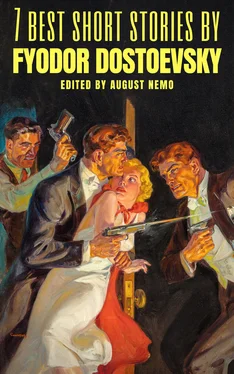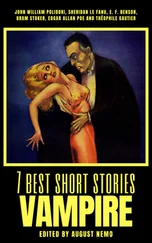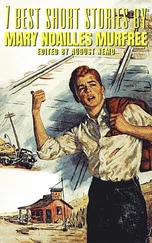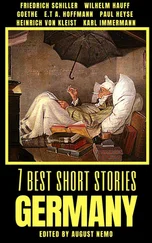Fyodor Dostoevsky was born in Moscow, Russia, on October 30, 1821. Son of Mikhail Dostoevsky and Maria Fyodorovna Nietcháieva. He was orphaned as a mother on February 27, 1837. That same year he was sent to Petersburg for the School of Military Engineering. In 1839, his father, who was a doctor, was murdered by the settlers of the farm where he lived. The fact provoked great upheavals in the life of Dostoevsky, who had the first attacks of epilepsy when it knew of the death of the father. His earliest letters show him to be a young man of passion and energy, as well as somewhat mentally unstable.
When Dostoyevsky finished school, he turned from the career he was trained and devoted himself to writing. In 1944, he resigned from public office and began writing his first novel, "Poor People," a novel that describes the mediocre environment in which he lived, published in 1846 in the "Petersburg Almanac".
In 1847 he published the second edition of "Poor People" and in 1948 he published "O Duplo", a novel that did not succeed. Doubts arise over his own capacity as a writer. The Double, however, has come to be known his best early work, and in many ways it was ahead of its time.
In 1847 he began to attend the socialist group of the revolutionary Pietrashevsky. He is considered subversive and is arrested. After eight months in prison, Dostoevsky was "sentenced" to death. In reality, though, this sentence was only a joke. At one point, however, Dostoevsky believed he had only moments to live, and he never forgot the feelings of that experience. He was sentenced to four years in prison and four years of forced service in the army in Siberia, Russia.
In November of 1859, returns to the city of Petersburg. The memories of life in prison are described in the books Memories of the House of the Dead (1861) and Memories of the Underground (1864).
In 1867, he published the novel "Crime and Punishment", which tells the story of the young Raskolnikov who commits a crime and begins to live from guilt for the act committed. The work is a great existential reflection on how the human being relates to the divine questions. "The Brothers Karamazov" is his last work, considered by psychoanalyst Sigmund Freud one of the greatest masterpieces of Western literature. The novel is a true web of characters and the work is permeated by indirect discourse, with free reflections of the author himself on the characters.
Dostoevsky died in St. Petersburg, Russia, on January 28, 1881.
The Russian Point Of View
Virginia Woolf 1
Doubtful as we frequently are whether either the French or the Americans, who have so much in common with us, can yet understand English literature, we must admit graver doubts whether, for all their enthusiasm, the English can understand Russian literature. Debate might protract itself indefinitely as to what we mean by "understand". Instances will occur to everybody of American writers in particular who have written with the highest discrimination of our literature and of ourselves; who have lived a lifetime among us, and finally have taken legal steps to become subjects of King George. For all that, have they understood us, have they not remained to the end of their days foreigners? Could any one believe that the novels of Henry James were written by a man who had grown up in the society which he describes, or that his criticism of English writers was written by a man who had read Shakespeare without any sense of the Atlantic Ocean and two or three hundred years on the far side of it separating his civilisation from ours? A special acuteness and detachment, a sharp angle of vision the foreigner will often achieve; but not that absence of self-consciousness, that ease and fellowship and sense of common values which make for intimacy, and sanity, and the quick give and take of familiar intercourse.
Not only have we all this to separate us from Russian literature, but a much more serious barrier--the difference of language. Of all those who feasted upon Tolstoi, Dostoevsky, and Tchekov during the past twenty years, not more than one or two perhaps have been able to read them in Russian. Our estimate of their qualities has been formed by critics who have never read a word of Russian, or seen Russia, or even heard the language spoken by natives; who have had to depend, blindly and implicitly, upon the work of translators.
What we are saying amounts to this, then, that we have judged a whole literature stripped of its style. When you have changed every word in a sentence from Russian to English, have thereby altered the sense a little, the sound, weight, and accent of the words in relation to each other completely, nothing remains except a crude and coarsened version of the sense. Thus treated, the great Russian writers are like men deprived by an earthquake or a railway accident not only of all their clothes, but also of something subtler and more important--their manners, the idiosyncrasies of their characters. What remains is, as the English have proved by the fanaticism of their admiration, something very powerful and very impressive, but it is difficult to feel sure, in view of these mutilations, how far we can trust ourselves not to impute, to distort, to read into them an emphasis which is false.
They have lost their clothes, we say, in some terrible catastrophe, for some such figure as that describes the simplicity, the humanity, startled out of all effort to hide and disguise its instincts, which Russian literature, whether it is due to translation or to some more profound cause, makes upon us. We find these qualities steeping it through, as obvious in the lesser writers as in the greater. "Learn to make yourselves akin to people. I would even like to add: make yourself indispensable to them. But let this sympathy be not with the mind--for it is easy with the mind--but with the heart, with love towards them." "From the Russian", one would say instantly, where-ever one chanced on that quotation. The simplicity, the absence of effort, the assumption that in a world bursting with misery the chief call upon us is to understand our fellow-sufferers, "and not with the mind--for it is easy with the mind--but with the heart"--this is the cloud which broods above the whole of Russian literature, which lures us from our own parched brilliancy and scorched thoroughfares to expand in its shade--and of course with disastrous results. We become awkward and self-conscious; denying our own qualities, we write with an affectation of goodness and simplicity which is nauseating in the extreme. We cannot say "Brother" with simple conviction. There is a story by Mr. Galsworthy in which one of the characters so addresses another (they are both in the depths of misfortune). Immediately everything becomes strained and affected. The English equivalent for "Brother" is "Mate"--a very different word, with something sardonic in it, an indefinable suggestion of humour. Met though they are in the depths of misfortune the two Englishmen who thus accost each other will, we are sure, find a job, make their fortunes, spend the last years of their lives in luxury, and leave a sum of money to prevent poor devils from calling each other "Brother" on the Embankment. But it is common suffering, rather than common happiness, effort, or desire that produces the sense of brotherhood. It is the "deep sadness" which Dr. Hagberg Wright finds typical of the Russian people that creates their literature.
A generalisation of this kind will, of course, even if it has some degree of truth when applied to the body of literature, be changed profoundly when a writer of genius sets to work on it. At once other questions arise. It is seen that an "attitude" is not simple; it is highly complex. Men reft of their coats and their manners, stunned by a railway accident, say hard things, harsh things, unpleasant things, difficult things, even if they say them with the abandonment and simplicity which catastrophe has bred in them. Our first impressions of Tchekov are not of simplicity but of bewilderment. What is the point of it, and why does he make a story out of this? we ask as we read story after story. A man falls in love with a married woman, and they part and meet, and in the end are left talking about their position and by what means they can be free from "this intolerable bondage".
Читать дальше

![Коллектив авторов - Best Short Stories [С англо-русским словарем]](/books/26635/kollektiv-avtorov-best-short-stories-s-anglo-thumb.webp)










